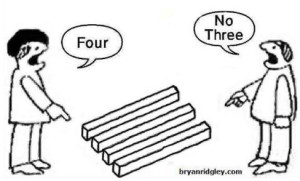Loving Others…Even When We Can’t Stand Them!
“I feel that there is nothing more truly artistic than to love people.” -Vincent Van Gogh
It’s easy to spout off phrases and quotes about the importance of love – for others, for oneself, for our environment, for children, for family, for those in need, for anyone or anything.
It’s a little harder to show love toward those that make us feel unpleasant emotions – hurt, anger, fear, you name it. It’s easy to love our friends who make us laugh, who console us during difficult times, who just “get” us. But how do we love the people who irritate and hurt us?
The default for most of us is being reactive. For example, when we’re in an argument – particularly with someone close to us, since the stakes are usually higher – we tend to react with negativity to perceived hurts from the other person. For example, if your significant other tells you that you’re rude around her friends, your first instinct might be to react and assert how wrong she is, name all the instances when you’ve gone out your way to be nice to her friends, and maybe even top it off by telling her how rude she is to YOUR friends!
And while all of that may very well be true…we often forget that so much of our communication is delivery – meaning, the tone and warmth in our voice, as well as how we come across, carries as much (if not more) weight than the actual content of our message.
So what does that mean for showing love to those who hurt us?
Well, in the example of an argument, we can train ourselves to pause for a few moments before responding – so that we can really consider the other person’s point. At the very least, that shows the other person that you’re truly listening and not just waiting for an opportunity to yell something back. At the most, we can take a second to process what they said and deliver our response in a more calm, measured, and respectful way.
In reality, this may be impractical for many people. Some of us may be so riled up in an angry moment, that waiting a few moments to “cool off” will do little good. That’s OK – and truly, great job if you’ve identified that pattern in yourself. The next step is to adapt your actions to fit that behavior, until you’re able to change the behavior itself. So, for those of us who need more than just a few moments to detach from an argument, try to cultivate the habit of leaving the room and taking a walk around the block when you feel yourself getting reactive. It may not completely take away your anger and hurt, but it will definitely help. When you get back, you’ll have a clearer head and be able to communicate more clearly.
Of course, it never feels this easy – and it’s definitely NOT. Showing love when more “negative” emotions dominate us is incredibly difficult – in the moment, it can feel like the hardest thing in the world. Most of us will mess up again and again in our attempts to correct these patterns. But, with time and true commitment to making love the focus of all communication, this will get easier, and at the very least, you’ll develop the hugely important habit of cooling off before responding to others. Over time, you may even find that you become more aware of your behavior patterns and triggers, which can help you learn to interact with others more wisely and peacefully.
What are your thoughts? Do you have any other tips on showing love to others during hard moments? Please share in the comments! And thanks for reading!
[whohit]blog-showinglove[/whohit]
